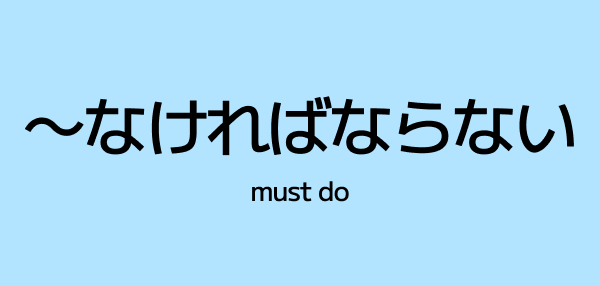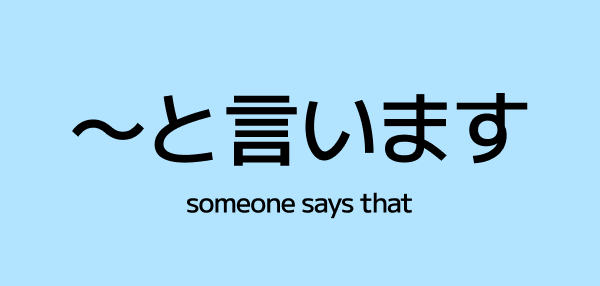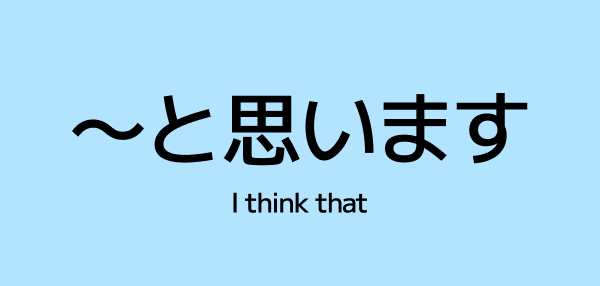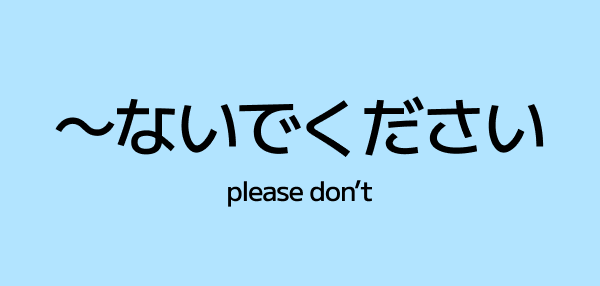~たほうがいい – It’s Better to Do (Advice in Japanese)
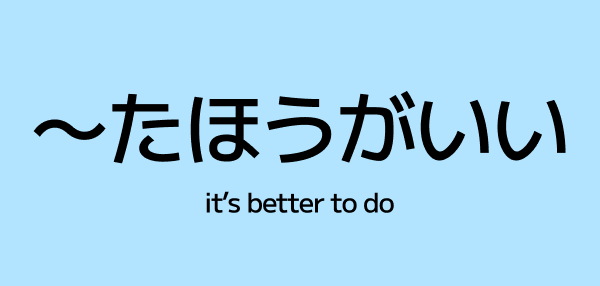
If you’re giving friendly advice or just stating what someone should do, the expression ~たほうがいい is your go-to phrase in Japanese. It's a polite way to suggest something without sounding bossy.
Let’s break it down and learn how to use it.
What Does ~たほうがいいMean?
~たほうがいい means:
- “You’d better do…”
- “It’s better if you…”
- “You should…”
It’s used when giving advice, sharing opinions, or suggesting what someone ought to do. It’s softer and more indirect than commands... and way more polite.
Use it for:
- Health tips
- Travel advice
- Recommendations
- Light social pressure (“You really should try this ramen…” 🍜)
How to Use ~たほうがいい
Just take the past tense (~たform) of a verb and add ほうがいい.
- のむ → のんだ → のんだほうがいい
- いく → いった → いったほうがいい
- たべる → たべた → たべたほうがいい
Examples
- もっと やさい をたべたほうがいいよ。 You should eat more vegetables. 🥬
- あした は はやくねたほうがいい。 You’d better sleep early tomorrow.
- びょういん にいったほうがいいと 思う。 I think you should go to the hospital. 😧
Negative Advice: ~ないほうがいい
Want to say “You shouldn’t…”? Just use the ないform of the verb.
- おさけ は あまりのまないほうがいい。 You shouldn't drink alcohol too much.
- このチョコ、よる にたべないほうがいいよ。 You probably shouldn’t eat this chocolate at night.
Try It Yourself
Give these a try:
- “You should study Japanese.” → 日本語をべんきょうしたほうがいい。
- “You shouldn’t go out today.” → きょう はでかけないほうがいい。
- “You should bring an umbrella.” → かさ をもっていったほうがいい。
- “You shouldn’t eat too much cake.” → ケーキ をたべすぎないほうがいい。
Note on Giving Advice in Japanese
In Japanese culture, people usually avoid being too direct. That’s why expressions like ~たほうがいい feel more like friendly advice than commands. Even when you’re trying to help, it’s better to soften your tone. It just goes in line with the rest of the "don't bother other people" (迷惑をかけない) culture.
This is why you’ll often hear:
- ~たほうがいいと思う → "I think you should…"
- ~たらどう? → “Why don’t you try…?”
These make your advice sound more casual, helpful, and kind. That’s pretty much the Japanese way.
Key Points to Remember
- Use ~たほうがいいto say “It’s better to do…” or “You should…”
- Use the past tense of verbs (~たform)
- To say “You shouldn’t…”, use the ~ないform +ほうがいい
- Soften your tone with ~と思うor ~たらどう?

